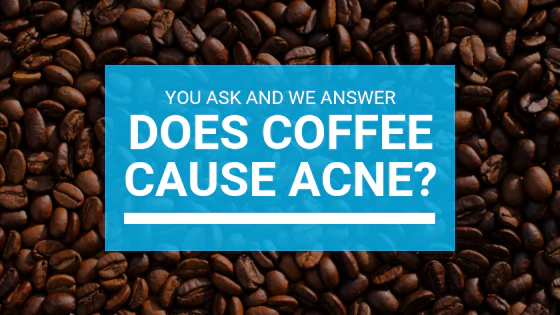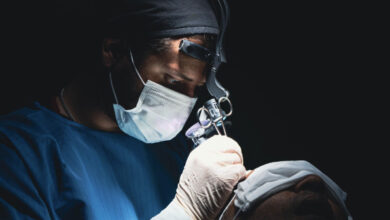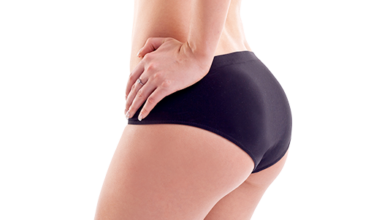Does Decaf Tea Cause Acne? Understanding the Effects of Decaf Tea on Skin Health

When people think of acne triggers, they might immediately think of greasy food or hormones, but one question that often arises is: does decaf tea cause acne? For many tea drinkers who prefer decaffeinated versions due to health reasons or sensitivity to caffeine, understanding the impact of this seemingly harmless beverage on their skin is essential. In this article, we’ll dive into the potential relationship between decaf tea and acne, exploring how it might affect your skin and offering tips on minimizing any negative impacts.
What is Decaf Tea?
Before we answer whether decaf tea causes acne, it’s essential to understand what decaf tea is. Decaf, or decaffeinated tea, is a regular tea processed to remove most of its caffeine. Decaffeination can be done using various methods, including water extraction, chemical solvents, or carbon dioxide. The goal is to maintain the flavour and health benefits of the tea while minimizing the caffeine content.
Acne and Its Causes
It’s important to understand acne first to understand whether decait’sa plays a role in its development. Acne occurs when pores on your skin become clogged with oil, bacteria, and dead skin cells. Factors like hormones, diet, stress, and genetics significantly influence acne. While diet is only one aspect, certain foods and beverages have been known to exacerbate or even trigger acne in some individuals.
How Does Regular Tea Affect Acne?
Regular tea, especially black and green tea, contains caffeine and antioxidants like catechins, which have anti-inflammatory properties. Caffeine can, however, stimulate cortisol production (the stress hormone), which has been linked to worsening acne in some individuals. Moreover, dairy-based additives like milk or cream in tea can also contribute to acne flare-ups, as some studies suggest a connection between dairy and skin inflammation.
Green tea, on the other hand, is often hailed as an acne-friendly drink due to its high antioxidant content. Catechins in green tea help reduce inflammation and prevent the oxidation of sebum (skin oil), which can clog pores. Therefore, regular tea might positively and negatively impact acne, depending on the person and the tea’s caffeine content.
Can Decaf Tea Contribute to Acne?
Now, let’s address the main concern: does decaf tea cause acne? Since decaf tea contains significantly less caffeine, it would be safer for those concerned about skin health. However, it’s essential to consider a few factors that may still make decaf tea a potential acne trigger.
- Residual Caffeine
Even though decaf tea contains far less caffeine than regular tea, it’s not entirely caffeine-free. Some people with sensitive skin may still react to the minimal caffeine left in decaf tea. Since caffeine can elevate cortisol levels, even in smaller amounts, decaf tea may contribute to stress-induced acne for those with extreme sensitivity.
- Decaffeination Process
The method used to decaffeinate tea can also affect its effect on the skin. Certain chemical solvents, like ethyl acetate and methylene chloride, are sometimes used in decaffeination. While these chemicals are generally considered safe in small quantities, they might cause adverse reactions in individuals with sensitive skin, potentially leading to acne flare-ups.
On the other hand, decaffeinated teas using natural methods, like carbon dioxide or water, are less likely to contain residues that could irritate the skin. Checking how your decaf tea is processed may be crucial for those prone to acne.
- Tea Additives
Many enjoy adding sweeteners, milk, or other flavours to their tea, whether caffeinated or decaffeinated. Unfortunately, dairy and sugar are both linked to increased acne risk. Dairy is known to raise insulin-like growth factor (IGF-1) levels, which can increase oil production and inflammation in the skin. Sugar can spike insulin levels, increasing sebum production, which may clog pores and lead to acne.
If you frequently drink decaf tea with milk or sugar, the risk might not be the tea causingthat’soutsbut the additives. Opt for unsweetened, dairy-free alternatives to reduce this risk.
- Tannins in Tea
Both caffeinated and decaf teas contain tannins, naturally occurring compounds that can irritate the stomach lining. While tannins are not directly linked to acne, digestive issues can contribute to inflammation, which may exacerbate skin conditions.
Other Potential Skin Benefits of Decaf Tea
While decaf tea may have the potential to contribute to acne in some people, it also offers various benefits that can promote skin health:
- Rich in Antioxidants: Decaf tea, especially green tea, retains many antioxidants in regular tea, such as catechins and flavonoids. These compounds help combat free radicals, which can cause cellular damage and contribute to ageing and skin conditions.
- Anti-inflammatory Properties: Some herbal decaf teas, such as chamomile and rooibos, have potent anti-inflammatory properties. Reducing inflammation can help prevent acne flare-ups and promote overall skin health.
- Hydration: Drinking tea, including decaf, contributes to overall hydration, essential for maintaining healthy skin. Proper hydration ensures that your skin stays supple, reduces dryness, and promotes healing of blemishes.
Final Thoughts: Does Decaf Tea Cause Acne?
So, does decaf tea cause acne? While decaf tea itself is unlikely to be a significant acne trigger for most people, some factors may contribute to skin flare-ups. These include residual caffeine, the chemicals used in decaffeination, and common additives like milk and sugar.
If you’re prone to acnetyou’re and want to enjoy decaf tea, consider choosing naturally decaffeinated varieties and limiting sugary or dairy-based additives. Monitor your skin’s reaction to differentreactioskin’sifferent decaf teas and adjust as needed. For most individuals, decaf tea can be enjoyed without significant concern for acne, but those with sensitive skin may need to exercise caution.
Questions & Answers
Q: Can drinking too much decaf tea make my acne worse? A: It depends on individual factors such as caffeine sensitivity, how the tea was decaffeinated, and what additives you use. For some, even small amounts of caffeine or added dairy and sugar can worsen acne.
Q: Is green decaf tea good for acne? A: Green decaf tea still contains antioxidants that can reduce inflammation and support skin health. Be mindful of how it’s processed, and please avoid adding sugary or dairy-based ingredients.
Q: Should I stop drinking tea if I have acne?A: Not necessarily. Monitor your skin’s reactioskin’ caffeinatedreactioskin’saffeinated and decaf teas and adjust based on what triggers flare-ups. Opt for teas without additives or those with anti-inflammatory properties, such as chamomile.
Q: How can I avoid acne flare-ups while drinking tea? A: Choose naturally decaffeinated teas, avoid adding dairy and sugar, and switch to herbal teas with anti-inflammatory properties. Additionally, stay hydrated and ensure that other factors, like diet and stress, are under control.
Q: Is herbal decaf tea better for the skin than regular decaf? A: Herbal teas, such as chamomile or rooibos, often have additional skin benefits due to their anti-inflammatory properties, making them a potentially better choice for those concerned about acne.
4o





